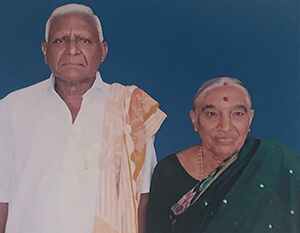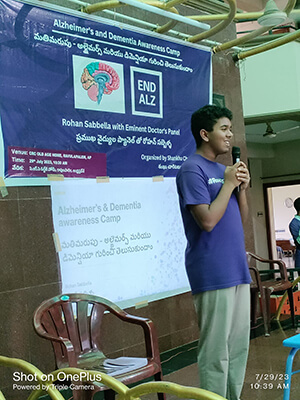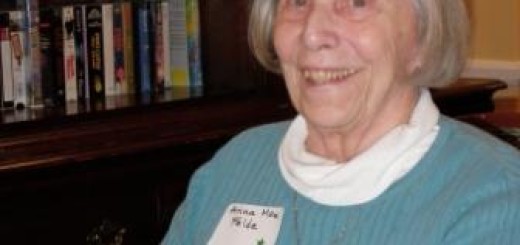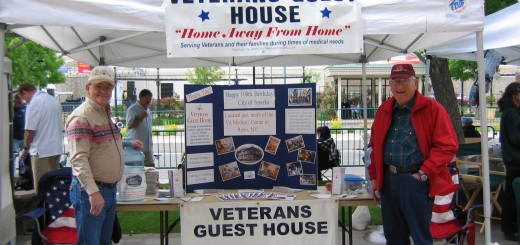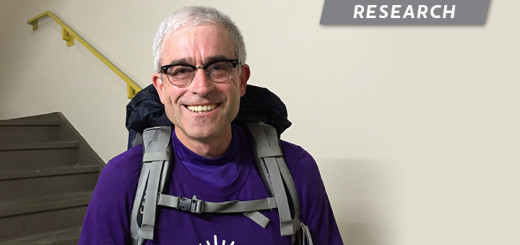High school honors student takes on social stigma and Alzheimer’s advocacy
By Kerry Larkey, MSN, RN
At just 16 years old, Rohan is an accomplished champion for Alzheimer’s disease awareness. Despite demands from his many academic obligations and extra-curricular activities, he manages to find time to volunteer with the Alzheimer’s Association® and advocate for people living with the disease and their loved ones. A senior in high school, he is also the creator of a dementia education camp in India. His inspiration? Rohan shares how he uses the experience of his beloved great-grandfather to fight stigma and build education about the disease.

Karri Narsi Reddy Alzheimer’s journey: From social butterfly to shut-in
Rohan’s great-grandparents lived in a small rural village in India, some distance from the nearest big city. Growing up, Rohan and his parents visited the family annually each summer, and he fondly remembers the time spent with his great-grandfather, Karri Narsi Reddy.
A fisherman, outdoorsman, and farmer, Karri was an active, social man who was a fixture of village life and very involved with the community. “[My great-grandfather] always fished in the river, and when he came back with one, my great-grandma would make an amazing fish curry, and I loved that,” Rohan recalls. “It was always the highlight of my trip.”
During these visits, year after year, the family began noticing that Karri became more forgetful. At first, it was small details like leaving the door unlocked, but over time the signs and symptoms of Alzheimer’s progressed, and his mental state deteriorated. It got to the point that Karri no longer recognized his local granddaughter that he partially helped raise. By the family’s last annual visit to India, Karri didn’t know who Rohan’s mother, his granddaughter, was.
Impact on the family and collective trauma
When Rohan was seven, a neurologist diagnosed his great-grandfather with Alzheimer’s. Despite his great-grandmother’s age and mobility issues (from a childhood bout with polio), she did her best to care for her husband, and the caregiving burden fell entirely on her. Their children helped as much as possible but, by that time, lived in Delhi, quite far away.
The Alzheimer’s Association® 2023 Alzheimer’s Disease Facts and Figures report shows that Rohan’s great-grandmother isn’t alone in the caregiving burden she experienced. In fact, in the United States, two-thirds of dementia caregivers are women, and about 30% of all caregivers are over 65 years old.
Unfortunately, the village did nothing to assist his great-grandparents. Even though Karri had close relationships with people in the community throughout his life, they all withdrew their social support after learning about his diagnosis.
Why did this tight-knit community refuse to help an elderly couple in need? “There’s a huge stigma—not just in India but in America, too—that Alzheimer’s is contagious,” Rohan explains. “I think [dementia] is seen as a sort of insanity to them…and due to that, locked him up in his room,” says Rohan. “The community he lived with and loved kind of mistreated him as an insane person…which made it even more disheartening.”
The community’s reaction traumatized his family. Rohan believes the insolation sped up the progression of his great-grandfather’s disease and led to his death in 2019. Sadly, Karri spent the last years of his life indoors and socially isolated.
A teen with a passion for dementia awareness
His great-grandfather’s tragic death inspired Rohan to make a difference, and he is on a mission to change the world. Now a 16-year-old senior, he is passionate about ending the stigmas that unfairly affected his family.
“I knew I wanted to get involved with advocacy. I don’t want discrimination—or what my grandfather faced—to happen to anybody,” he says. “I don’t think ill of the people in the village. It was a lack of knowledge and communication about Alzheimer’s disease and how it should be properly treated.”
To educate the community and increase dementia awareness, Rohan joined the Association as a committee member and participant in the 2022 Walk to End Alzheimer’s – Silicon Valley. He was the youngest committee member and recalls feeling uneasy about joining the first meeting. “It looked like everyone was over 25, but then as soon as everyone started talking,” Rohan explains, “everybody was super nice…and I never felt nervous again.”
Policy reform advocacy with the Alzheimer’s Impact Movement
In addition to his work with the Walk, Rohan is also a member of the Bay Area chapter of the Alzheimer’s Impact Movement (AIM). The group’s goal is to engage policymakers in discussions to increase funding for Alzheimer’s research, care, and resources.
As an AIM representative, Rohan attended one of Congressman Ro Khanna’s town hall meetings earlier this summer. “I was able to share my story and ask for support for the drug lecanemab. I got to share my story about my great-grandfather and the discrimination he faced.” In response, Congressman Khanna referred the team to his cabinet, where they have continued progressing with lobbying efforts.
It takes an entire family
In addition to working with Congressman Khanna’s team, Rohan also attended the Alzheimer’s Association’s Access Now rally to lobby Medicare to include coverage for FDA-approved treatments for people living with Alzheimer’s. “The rally was awesome. I helped with chanting the chants, and my mom came, too,” Rohan beams.
Rohan’s dad, Sridhara Sabbella, and his mother, Dr. Vasavi Chinnam, have encouraged his involvement from the beginning of his advocacy pursuits. “My parents have been very supportive. My Mom is part of the [Silicon Valley] Walk this year and my Dad just joined the Walk committee. They’ve done an amazing job taking me to San Francisco [for a rally] on a weekday when they have to work…Shout out to them,” he says.
Worldwide education: “My mission is to spread the word about Alzheimer’s.”
But Rohan isn’t content with limiting his education efforts to the United States; he wants to change the world. In July, he organized and hosted a series of Alzheimer’s awareness camps in India in partnership with Shanku Charitable Trust, a non-governmental organization in Hyderabad. In addition to Rohan’s speech, they arranged for at least one physician to speak at each event.
The camp locations varied to offer residents in both urban and rural areas the opportunity to attend and learn about dementia. There were four locations: KBR Park in Hyderabad, Telangana; Marteru Village, Andhra Pradesh; Sri Satya Sai Seva Samiti Hall in Ravulapalem, Andhra Pradesh; and CRC Old Age Home in Ravulapalem, Andhra Pradesh. Rohan estimates they reached 200-400 people in total, an impressive feat given it was monsoon season and travel was often difficult.
Taking a holistic approach
“The response was great,” says Rohan. “I got a ton of questions after. For example, I talked about how we were mainly focused on behavioral and non-medical therapies…The community loved that I was talking about tangible stuff like diet, exercise, and music—things that could really be implemented into their lifestyle.”
“There was one yoga instructor hooting and hollering while I talked about yoga,” Rohan recalls. According to the Facts and Figures report, Asian American and Pacific Islander (AAPI) families generally preferred natural alternatives to prescribed medication. For people living in rural areas, a lack of access to medical facilities or advanced treatment options also drives their preference for holistic options.
Success through connection
With his father by his side, translating each word into the local language, Telugu, Rohan spoke to the crowds and dispelled many myths about Alzheimer’s. He says, “[Afterwards, attendees] came up to me and were like ‘Oh my god. I didn’t know it wasn’t contagious…Thank you. I didn’t know it was this much of a problem. I didn’t know being more patient with them would help them a lot more.” The outpouring of gratitude and understanding from participants was overwhelming.
Each talk brought new adventures and many required flexibility and adaptability in dealing with logistics. Rohan and his family overcame the challenges of monsoon rains, unexpected audio/visual equipment compatibility issues, and last-minute guest speaker cancellations. Each problem was a learning opportunity, and Rohan didn’t allow obstacles to interfere with his goal of raising dementia awareness.
The last camp was the most powerful for Rohan. “The fourth presentation was in a senior living center…As we were presenting, people were coming out of the quarters and looking out of their windows, and taking videos of my speech. I was really glad they were going out of their way to take in my speech and that was inspiring to me,” he says.
An inspiration to other teens
Rohan’s passion and accomplishments are an inspiration to the community and other teens. “I love the opportunity to speak to and meet people,” he says. “I’m a really social person, so having the opportunity to meet people from all walks of life who are interested in Alzheimer’s has been an insane and awesome experience for me.”
In a very short time, Rohan has created change on a global scale and is showing others that age is not a barrier to making a difference. If you’re interested in joining Rohan and becoming a volunteer with the Alzheimer’s Association—whatever your age—please visit alz.org/norcal/volunteer.
The Walk to End Alzheimer’s in Silicon Valley is on October 14, 2023. You can join Rohan’s team or start your own. Not in the Silicon Valley? Visit alz.org/walk to find a Walk near you.





